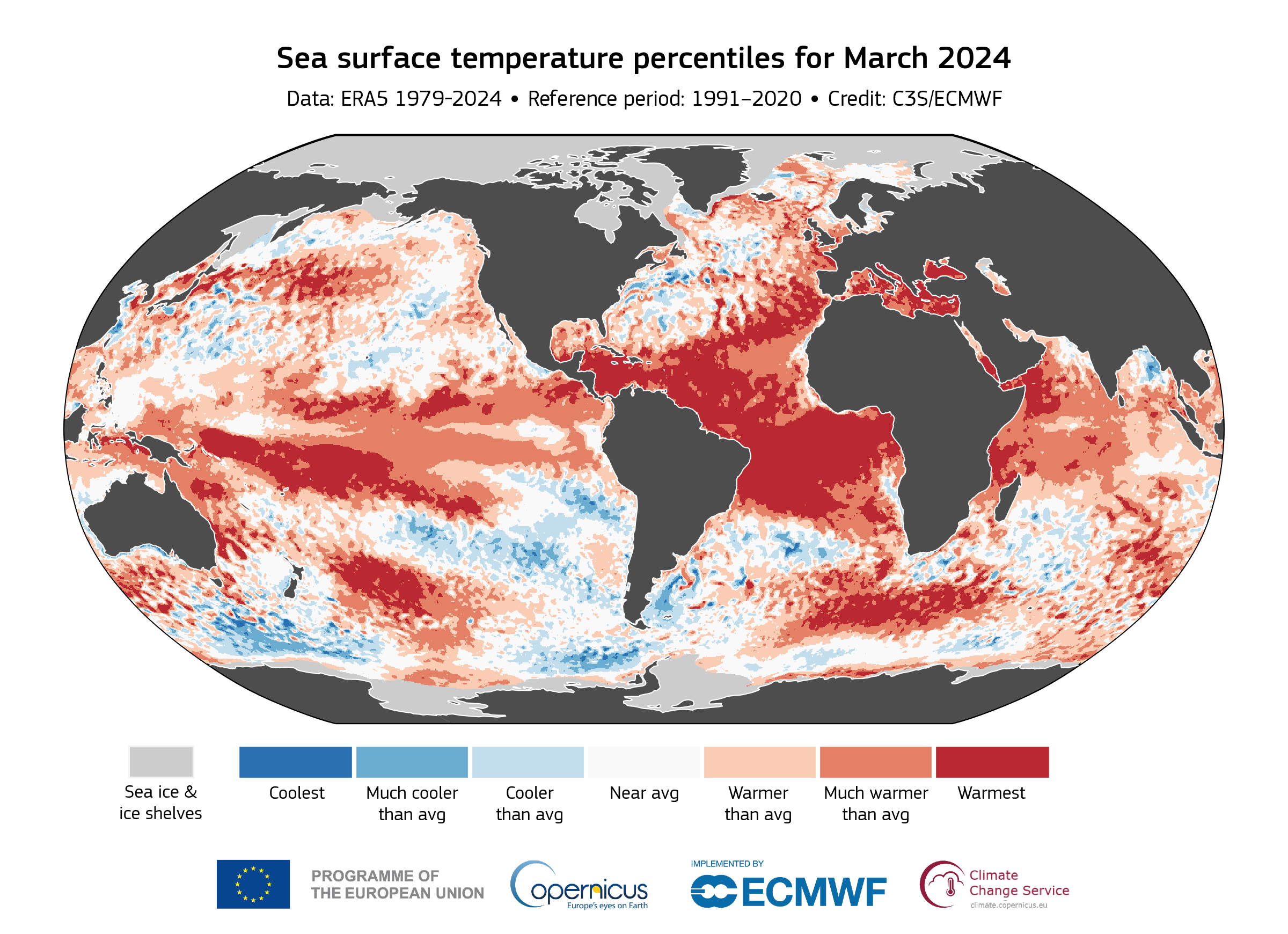Tenth month of record warmth: Climatologists identify reasons for anomaly
 Photo: Record warmth in the world is due to El Niño (Vitalii Nosach, RBC-Ukraine)
Photo: Record warmth in the world is due to El Niño (Vitalii Nosach, RBC-Ukraine)
The average surface air temperature in March 2024 was 14.14 degrees, which is 0.1 degrees higher than the previous maximum set in March 2016. This is the tenth consecutive month that has been the world's warmest on record, according to the European Union's Copernicus Earth Observation Program.
The month was 1.68 degrees warmer than the average March temperature for 1850-1900, which is called the "pre-industrial reference period."
The global average temperature for the past twelve months (April 2023 - March 2024) is the highest on record: 0.70 degrees above the 1991-2020 average and 1.58 degrees above the 1850-1900 average.
 Photo: Copernicus Earth Observation Program
Photo: Copernicus Earth Observation Program
The average European temperature in March 2024 was 2.12 degrees above the 1991-2020 average for March, making it the second warmest March on record for the continent, just 0.02 degrees colder than March 2014. The highest temperatures were above average in March 2024 in the central and eastern regions.
"Air temperatures were above average over large parts of the ocean, although El Niño conditions continued to weaken over the eastern equatorial Pacific," the report says.
Reasons for the record heat
According to The Guardian, the temperature temporarily exceeds the target of 1.5 degrees above pre-industrial levels set as a goal of the Paris Climate Agreement, but this agreement will not be considered violated if this trend does not continue on a decade-long scale.
However, the sharp rise in temperature over the past year has surprised many scientists and raised concerns about a possible acceleration of warming.
Diane Urge-Vorzats, one of the vice-chairs of the UN Intergovernmental Panel on Climate Change (IPCC), noted that over the past 15 years, the planet has been warming at a rate of 0.3 degrees per decade, almost double the 0.18 degrees per decade trend since the 1970s. "Is this within the range of climate variability or a signal of accelerated warming? My concern is it might be too late if we just wait to see," she writes on X.
Gavin Schmidt, director of NASA's Goddard Institute for Space Studies, notes that temperature records are being broken by 0.2 degrees every month. He writes in Nature that it is sad and a little disturbing to recognize that no year has distorted the predictive capabilities of climate scientists more than 2023.
Schmidt lists several possible causes of the anomaly: the El Niño effect, reduced cooling of sulfur dioxide particles, precipitation from the eruption of the Hunga Tonga-Hunga Haapai volcano in January 2022, and increased solar activity as we approach solar maximum.

